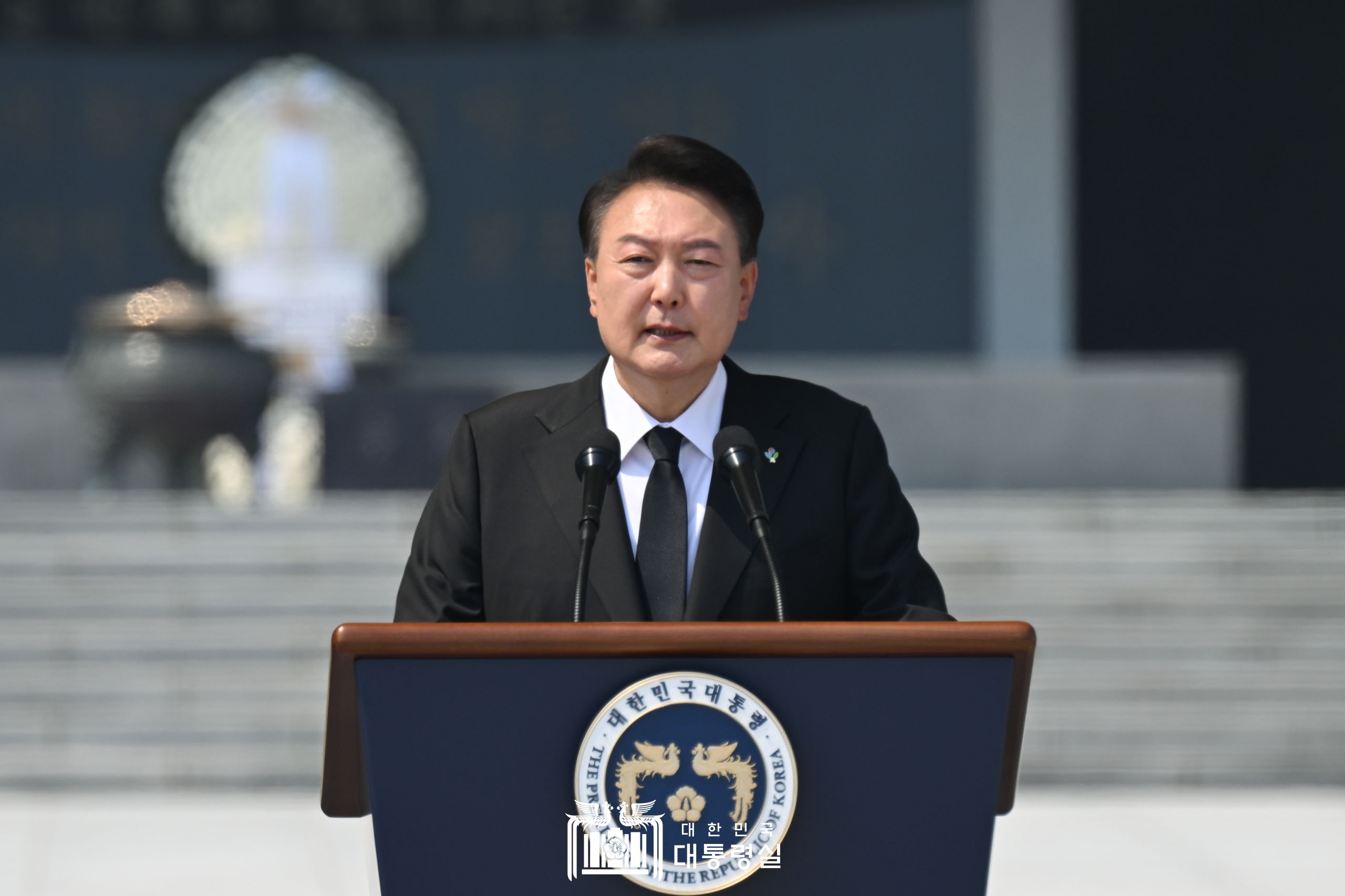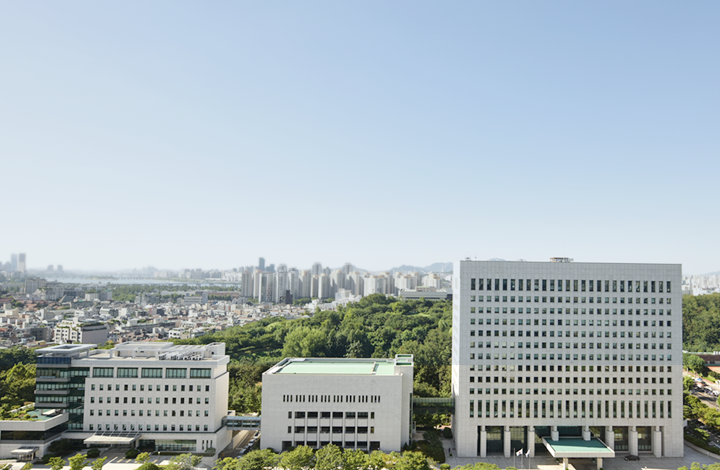
South Korea’s Second Presidential Impeachment Unleashes Political Earthquake and Market Reckoning
South Korea’s Second Presidential Impeachment Unleashes Political Earthquake and Market Reckoning
As Yoon Suk-yeol is Ousted for Martial Law Overreach, a Nation Braces for a Tumultuous Transition—and a High-Stakes Election
In a moment that will reshape South Korea’s political and economic trajectory for years to come, the Constitutional Court on Thursday unanimously approved the impeachment of President Yoon Suk-yeol, finding him guilty of grave constitutional violations, including the illegal imposition of martial law and the deployment of military forces into the National Assembly.

This marks only the second time in the nation’s modern history that a sitting president has been forcibly removed from office. The decision, broadcast live to a rapt public, leaves South Korea leaderless at a time of intense political division and economic sensitivity—and sets in motion a 60-day countdown to elect a new head of state.
"Grave Abuse of Power": The Court's Rationale and Historical Weight
In a rare show of unanimity, all eight justices of the Constitutional Court found that Yoon had “seriously violated” both the Constitution and the Martial Law Act. The court determined that Yoon’s declaration of emergency martial law—ostensibly to maintain order—was unconstitutional, unlawful in procedure, and a direct assault on the democratic rights of Parliament and the independence of the judiciary.

“The president deployed armed forces to influence the legislative process and detain political opponents. This was a violation of the most fundamental principles of constitutional governance,” one justice stated during the ruling, broadcast across national media.
Legal experts called the decision “historic in its clarity and consequence.” Yoon now becomes the second South Korean president—after Park Geun-hye in 2017—to be stripped of office through impeachment, and he faces the very real prospect of criminal prosecution.
Did you know that in South Korea, the presidential impeachment process involves a two-thirds majority vote in the National Assembly to suspend the president, followed by a Constitutional Court review? This review must be completed within 180 days, requiring at least six out of nine justices to vote for removal. If upheld, the president is formally removed, and a new election is held within 60 days. This process ensures accountability while maintaining checks and balances, as seen in recent cases where the Constitutional Court plays a crucial role in determining the outcome.
From Commander-in-Chief to Defendant: Yoon’s Rapid Descent
With the court’s verdict, Yoon is immediately stripped of all presidential powers and protections. Gone are the pension benefits, the state-sponsored security detail, and the ceremonial post-office trappings. Most critically, he now loses the political immunity granted to sitting heads of state.
Legal proceedings over his role in ordering the military into the legislature are imminent. Prosecutors are reportedly preparing to indict him for inciting unrest and subverting the rule of law. If convicted, Yoon could face a prison sentence.

An analyst from a Seoul-based legal think tank noted, “This is no longer about politics—it’s a question of criminal accountability for what the court has termed a direct threat to constitutional democracy.”
The Streets Stir: Civil Unrest and Polarization Erupt
Outside the Constitutional Court, emotions ran high. Anti-Yoon protesters, many from progressive civic groups, waved national flags and chanted slogans demanding swift justice. In contrast, pro-Yoon supporters clashed with police, overturning patrol cars and accusing the court of orchestrating a political coup.

One onlooker described the scene as “a battlefield of flags and fists.”
While the acting president, Prime Minister Han Deok-soo, has called for calm and vowed to ensure a peaceful transition, the nation remains deeply polarized. The conservative People Power Party—the ruling party until hours ago—now faces internal fractures and a collapsing power base. Party leaders pledged to “accept the court’s decision” but also condemned the violence that followed.
“There is no place for street-level confrontation in a democracy. We must prioritize national unity,” a senior party official said, attempting to contain the fallout.
A Compressed Election Clock—and a Power Vacuum
According to constitutional mandate, South Korea must now elect a new president within 60 days. The election is tentatively scheduled for June 3, with candidate registration beginning May 10. That leaves political parties with less than five weeks to finalize nominations and recalibrate strategies.
Early polling shows a clear front-runner: Lee Jae-myung, leader of the progressive Democratic Party, enjoys a commanding 33% support—well ahead of his closest rival, Labor Minister Kim Moon-soo, at 9%. Other potential conservative candidates, such as former party head Han Dong-hoon and Seoul Mayor Oh Se-hoon, are polling in the single digits.

(Summary of Recent South Korean Presidential Election Poll Results as of March 2025)
| Pollster | Date (YYYY-MM-DD) | Metric | Result/Candidate | Percentage/Rating |
|---|---|---|---|---|
| Gallup Korea | 2025-03-25 to 27 | Party Support | Democratic Party (DP) | 41% |
| Gallup Korea | 2025-03-25 to 27 | Party Support | People Power Party (PPP) | 33% |
| Gallup Korea | 2025-03-25 to 27 | Preferred Next President | Lee Jae-myung (DP) | 34% |
| Gallup Korea | 2025-03-25 to 27 | Preferred Next President | Kim Moon-soo (PPP) | 8% |
| Realmeter | 2025-02-26 to 28 | Party Support | Democratic Party (DP) | 44.2% |
| Realmeter | 2025-02-26 to 28 | Party Support | People Power Party (PPP) | 37.6% |
| Realmeter | 2025-02-26 to 28 | Hypothetical Matchup (vs Kim) | Lee Jae-myung (DP) | 50.0% |
| Realmeter | 2025-02-26 to 28 | Hypothetical Matchup (vs Lee) | Kim Moon-soo (PPP) | 31.6% |
| NBS (Consortium) | 2025-02-03 to 05 | Party Support | People Power Party (PPP) | 39% |
| NBS (Consortium) | 2025-02-03 to 05 | Party Support | Democratic Party (DP) | 37% |
| NBS (Consortium) | 2025-02-03 to 05 | Preferred Next President | Lee Jae-myung (DP) | 32% |
| NBS (Consortium) | 2025-02-03 to 05 | Preferred Next President | Kim Moon-soo (PPP) | 12% |
“The public wants a reset. They want accountability, stability, and reform. Lee Jae-myung represents that change,” said one political analyst.
Financial Fallout: Investors Brace for Short-Term Shock, Long-Term Reset
Markets reacted with knee-jerk caution. The KOSPI slipped in early trading as investors digested the news, while the Korean won briefly dipped against the dollar amid fears of prolonged uncertainty.
KOSPI Index Performance During Political Turmoil: December 2024 to April 2025
| Date | KOSPI Closing Index | Change | % Change | Notes/Context |
|---|---|---|---|---|
| Dec 3, 2024 | ~2,500 | Approximate closing level before martial law declaration. | ||
| Dec 4, 2024 | ~2,450 (Estimated) | ~ -50 | ~ -2% | Sharp decline following martial law declaration and reversal. |
| Dec 9, 2024 | 2,360.58 | KOSPI hit its lowest point amidst ongoing political turmoil. | ||
| Dec 16, 2024 | 2,488.97 | -5 | -0.20% | Slight decline following impeachment vote but recovery from losses. |
| April 1, 2025 | 2,521.39 | +40.27 | +1.62% | Sharp rebound after three consecutive losing sessions as impeachment ruling eased uncertainty. |
| April 3, 2025 | 2,505.86 | -15.42 | -0.61% | Decline amidst ongoing market fluctuations following impeachment ruling anticipation. |
| April 4, 2025 | 2,486.70 | -19.16 | -0.76% | Latest available closing data reflecting continued volatility post-impeachment ruling. |
|
Foreign and institutional investors are watching closely. A Seoul-based hedge fund manager observed that “the vacuum in leadership raises near-term volatility, especially in sectors like defense, energy, and large-cap tech with regulatory exposure.”
But some see opportunity in the chaos.
“This is a classic transitional risk phase,” said one senior strategist at a multinational investment bank. “Yes, there’s uncertainty—but also the potential for upside once the electoral path becomes clear. A decisive progressive win could unlock new fiscal spending and social policy reforms.”
Policy Reversals Loom: From Defense Posture to Labor Law
A new administration—especially under Lee—would likely undertake a sweeping review of Yoon-era policies, including foreign affairs, military posture, and economic reform.

Labor unions and progressive NGOs are already demanding the reversal of deregulation policies and pro-corporate tax incentives. Advocates are pushing for increased social spending and a reassessment of South Korea’s defense ties, particularly with the United States.
Did you know that the U.S.-South Korea Mutual Defense Treaty, signed in 1953, is a cornerstone of the alliance between the two nations? This treaty ensures mutual defense in case of an armed attack and has been instrumental in maintaining stability in the region. It allows for the presence of U.S. military forces in South Korea, which currently numbers around 28,500 troops. The treaty has not only provided a military shield but has also contributed significantly to South Korea's economic development and global standing. Despite its indefinite duration, the treaty can be terminated with a year's notice by either party. This enduring partnership has evolved beyond military cooperation to encompass economic, political, and social ties, making it a pivotal element in regional security and diplomacy.
“We expect the incoming administration, if progressive, to revisit not only domestic legislation but also Seoul’s geopolitical posture,” said a foreign policy expert in Washington. “This could have regional implications—especially vis-à-vis North Korea and China.”
Ruling Party in Disarray, Opposition on the Rise
The People Power Party, still reeling from the impeachment, appears headed for fragmentation. Analysts expect key figures to splinter into new factions or retire altogether, leaving the Democratic Party in a position to consolidate political capital.
That shift may have enduring consequences: with progressive forces emboldened, conservative policies on national security, education, and even trade are now up for renegotiation.
What Lies Ahead: A Nation Redefines Its Democratic Future
South Korea now stands at a turning point. The ousting of Yoon Suk-yeol is more than a legal outcome—it is a national reckoning with the limits of presidential power and the resilience of democratic institutions.

The next 60 days will determine more than just who occupies the Blue House. They will define South Korea’s ideological direction, its market stability, and its role in a rapidly evolving geopolitical landscape.
For investors, policy makers, and citizens alike, the question is not just who will win the next election—but whether South Korea can weather the storm, emerge more united, and reaffirm the principles that Yoon’s actions so brazenly undermined.
Stay tuned. The clock is ticking.